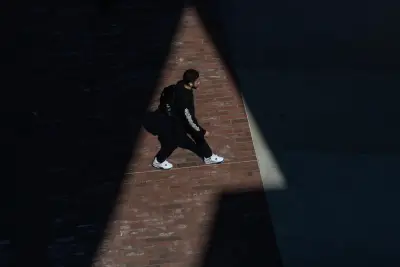Opinion: What California still doesn’t understand about men’s mental health

Every year a limited headlines remind us about Mental Healthcare Awareness Month And then just as speedily we move on But the truth doesn t go away For people whose lives have been impacted by it neither does the grief I m a -year-old Black man and a project director of a youth-led mental medical initiative in Santa Cruz and Monterey counties I ve been doing this work for years But I started living this work when I was the year I lost a sibling to suicide Related Articles What led to the closure of Alameda County s first-in-the-nation rape problem center Bay Area Sikhs seeking mental wellness aid battle weakness stigma California to provide LGBTQ suicide prevention hotline after Trump administration axes it Workplace mental wellbeing at exposure as key federal agency faces cuts Olson Artificial intelligence s mental wellness costs are adding up I didn t have the language for it then only the silence that followed That silence is still killing us In California youth and young adults ages to make up just of the population yet they account for of all urgency room visits due to self-harm That number should stop us cold And for young men in that group especially Black and brown men the pressures are even sharper We re over-policed and under-protected recounted to be strong but never safe and expected to endure pain without language or rest Too often the conversation around men s mental vitality gets hijacked either to justify violence or to dismiss vulnerability The algorithms favor rage The headlines flatten the story And influencers push a version of masculinity rooted in control not clarity What we call masculinity in America is often just unprocessed grief in a fitted cap Through my work with young people across California I ve seen what happens when we offer real space to feel I ve watched boys start to breathe when they realize emotions are not liabilities but signals They re clues They re a map back to themselves But healing requires more than hashtags It requires safety It requires tools And it requires the cultural permission to pause What we need in California is emotional literacy taught in schools not just trauma response after harm We need culturally grounded healing spaces not filtered through law enforcement We need prevention strategies rooted in belonging not just diagnoses We need a statewide narrative that treats emotional safety as a part of our infrastructure This is about design We don t need another awareness month We need a future where emotional safety is a right not a luxury A future where no boy learns to hide his grief because no one ever taught him how to name it Men aren t broken We re just long overdue for a new kind of strength Ayo Banjo is the founder of Banjo Strategies Consulting Group and a project director for The Village Project He wrote this column for CalMatters


